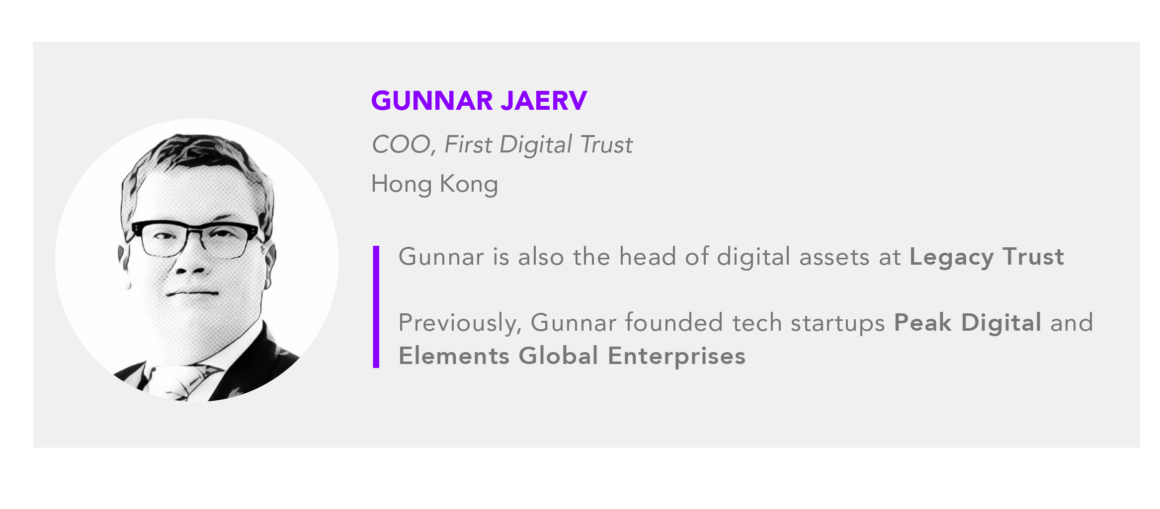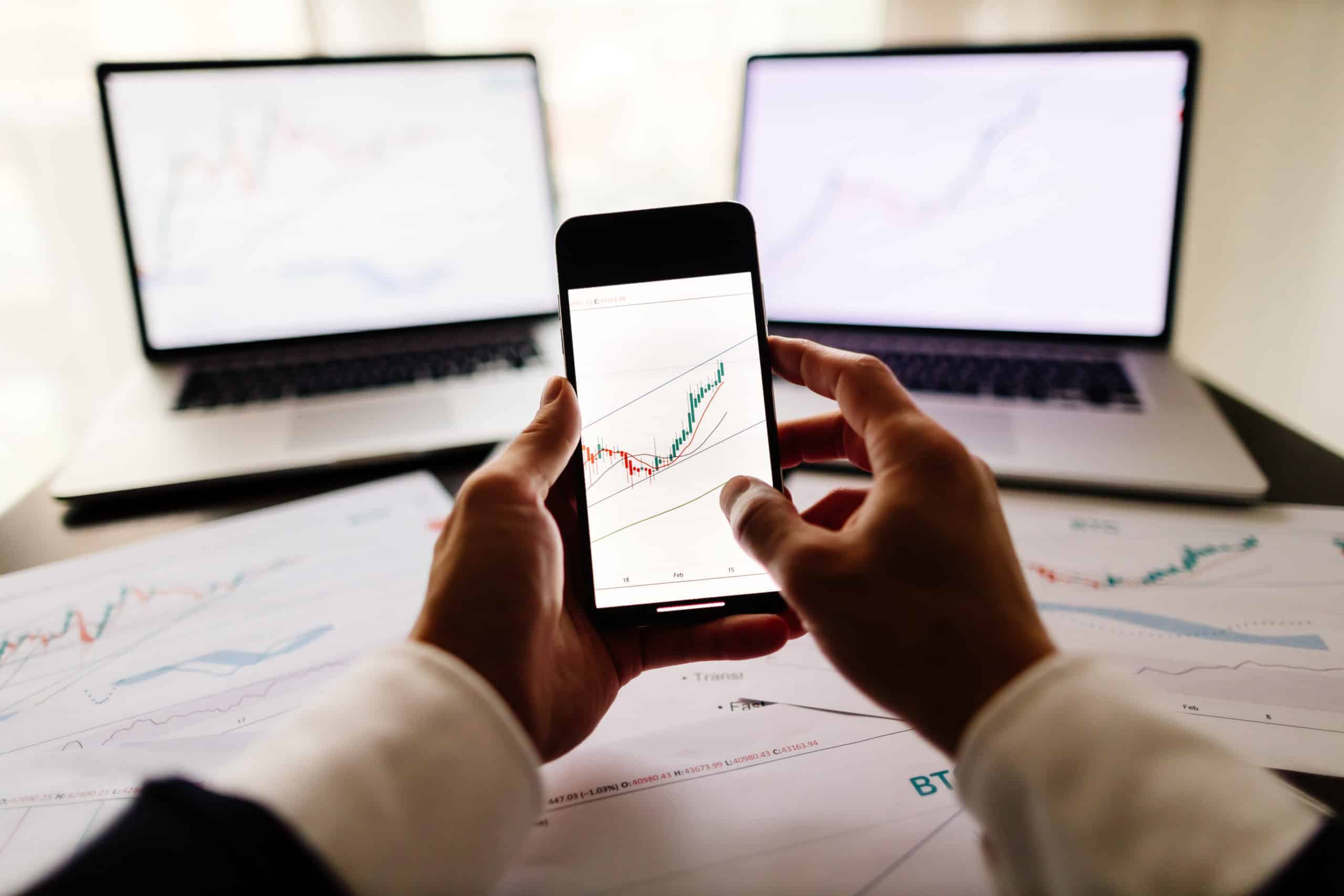Bitcoin legitimization and institutionalization has ramped up in response to the recent bull run with investors flocking to access the US$1.89 trillion cryptocurrency market, which exceeded the value of social media giant Facebook this year.
We are witnessing Bitcoin and digital assets making the front cover of the most widely read publications while some of the world’s largest institutions and companies have decided it’s now time to accept that cryptocurrencies are here to stay.

Major players are now investing in the space — Tesla spent US$1.5 billion of its cash reserves to buy Bitcoin and Mastercard announced it would support select cryptocurrencies on the network.
Even America’s oldest bank, BNY Mellon, confirmed they would hold and transfer crypto for asset management clients, with head of custody’s Caroline Butler stating that, “enabling the use of digital assets is critical to transforming the future of custody.” And BNY Mellon’s head of digital assets noted that “there’s an overall sentiment shift with respect to digital assets,” and “digital assets are the future.”
But is the industry ready for global adoption? At the same time, we have million-dollar crypto hacks happening on a near-monthly basis, causing the value of companies to drop by up to 30%.
Digital assets and cryptocurrencies hold great potential, but the industry is nascent. How can investors ensure they are safely purchasing digital assets that won’t get stolen? How do you know you’re allowed to legally own it? There are key questions investors must ask before considering purchasing and adopting digital assets.
Five key questions investors must ask before accessing Bitcoin and digital assets
- How do I know the asset provider is regulatory licensed or purchasing assets is legal in my country?
Bitcoin was invented to be a borderless, global currency, accessible by anyone with internet. But while the currency, along with other digital currencies, is technically not restricted by borders, domestic regulations should not be ignored. What may be legal in one country differs from another, and regulations are changing regularly as tax authorities, enforcement agencies and regulators attempt to keep up.
For example, some prediction markets and cryptocurrency exchanges are banned from the U.S. But in the U.S. you can also buy a Subway sandwich with Bitcoin. In both the U.S. and Canada, Bitcoin is considered a money service business. In Australia, it’s considered an asset for capital gains purposes. China and cryptocurrencies are banned in China, and in Russia it is illegal to use it as a payment for goods and services. Switzerland on the other hand, has welcomed crypto with open arms, establishing its own Crypto Valley.
Be sure to check the jurisdiction in your home market, and always try to go local. Check the most reputable digital asset providers and whether they are offered in your own country. Find a company that has been around for a while and check its history in the news for hacks and breaches. Evaluate how they responded to it. Did they give the money back if they were hacked?
It’s advisable to purchase assets from a licensed institution — providers like Coinbase, Gemini, BTSE or Binance are examples of companies who seek to align with regulations where assets can be accessed in different jurisdictions.
Digital asset legalities differ from jurisdiction to jurisdiction, so it is important to do your research and identify if it is permitted in your country. Finder has a great resource for country-by-country jurisdictions.
- How can I ensure trust and security and avoid counterparty risk?
As digital currencies and assets are online, this makes them vulnerable to attack. But there are ways to ensure your assets can remain protected and safe. Counterparty risk should always be considered in a risk management strategy.
Firstly, you should only be willing to invest in what you are willing to lose. It is not recommended to invest 100% of your assets into crypto. Those who keep 100% of capital on an exchange also have a higher risk of loss. If the exchange gets hacked, you can lose it all.
When you’re not actively trading, remove them from the exchange with a hardware wallet or custody provider who will protect your assets. While Bitcoin was created to eliminate third party risk, many exchanges hold your private keys, increasing your counterparty risk.
Check what security the company provides. Do they have the know-how and experience? Or are they another exchange building a security vault themselves opening users to greater potential risk?
To ensure you’re investing safely, you need to do due diligence on the counterparty. The digital asset provider must have infrastructure that is capable of protecting digital assets. There’s no point purchasing from a company if they are vulnerable to attack.
And as regulation catches up to the cryptocurrency space, you must ensure that the provider is executing and abiding by know-your-customer (KYC) and anti-money-laundering (AML) procedures. Using reputable companies who abide by these will ensure you’re not illegally purchasing digital assets from an unlicensed regulation provider.
It is a regulatory requirement to have those disclosures on a website. If a provider isn’t abiding by AML and KYC protocols today, you can pretty much guarantee they will get in trouble with regulators. If not tomorrow, in weeks to come and it’s your money that will be at risk.
- What is the track record and history of the asset managers? Do they understand how digital assets work?
If you choose to select an asset manager to assist in your investment strategies and protection of your assets, ensure they are a licensed entity. Most jurisdictions enact tough laws on asset management licensing. They need to understand and hold key knowledge on how digital assets work, as they differ to fiat.
Not anyone can be an asset manager — do you research beforehand to see their track record and history in digital asset management. They will have a portfolio of previous and current clients they are working with in safekeeping. Due diligence here is key.
Check if they are using a reputable KYC partner too. Not all companies offer KYC services that are reputable. Some companies take shortcuts. A reputable KYC platform that uses artificial intelligence like Onfido will remotely verify your identity to ensure your assets are yours, and can perform these checks better than any human.
Covid-19 has made it nearly impossible for people to meet face to face — a traditional expectation of approving applications through financial service providers. As the world moves to a more decentralized and remote environment, secure identity verification is critical.
- How do I know I’m not buying tainted coins with illicit history?
While Bitcoin’s reputation of being used for illicit activity has changed overtime, its use of criminal activity still holds weight. U.S. Treasury Secretary Janet Yellen recently highlighted she sees the promise of digital currencies, but states that the use of crypto for terrorism remains a growing problem.
Investors are demanding access to “clean coins” without tainted histories, so it’s important to find providers who can provide this guarantee. Today, we have innovative crypto analytics technology that can perform a screen on a wallet to ensure coins are not connected to illicit activity.
Crypto analytics providers like Elliptic have managed to reduce overall illicit activity involved in cryptocurrencies via this technology. Today, illicit activity in Bitcoin accounts for less than 1% of transactions, which is a dramatic reduction from 2012 when 35% of crypto transactions were illicit, according to a 2020 Elliptic report.
Financial institutions and digital asset providers risk significant fines if they knowingly sell tainted coins with an illicit history. Companies who use these compliance controls are reducing laundering and illicit activity via their platforms, meeting regulatory requirements and managing risk for investors.
- Can you include a multi-asset strategy? Are they a multi-asset custodian? If your strategy changes from bonds and stocks can you access Bitcoin and other digital assets within the same portfolio?
If your investment strategy changes from traditional fiat, bonds and stocks to Bitcoin and ETH, check you can access digital assets within the same portfolio rather than needing to go to individual service providers. This eliminates further counterparty risk, additional costs and going through regulatory requirements again like KYC and AML.
Investing in digital assets does not need to be confusing, overwhelming, or risky if you’re using reputable companies that are incorporating all the necessary protocols expected of a provider. At the end of the day, it’s these providers who include all security, regulatory and diversification protocols and ensure you can have a robust investment strategy.




